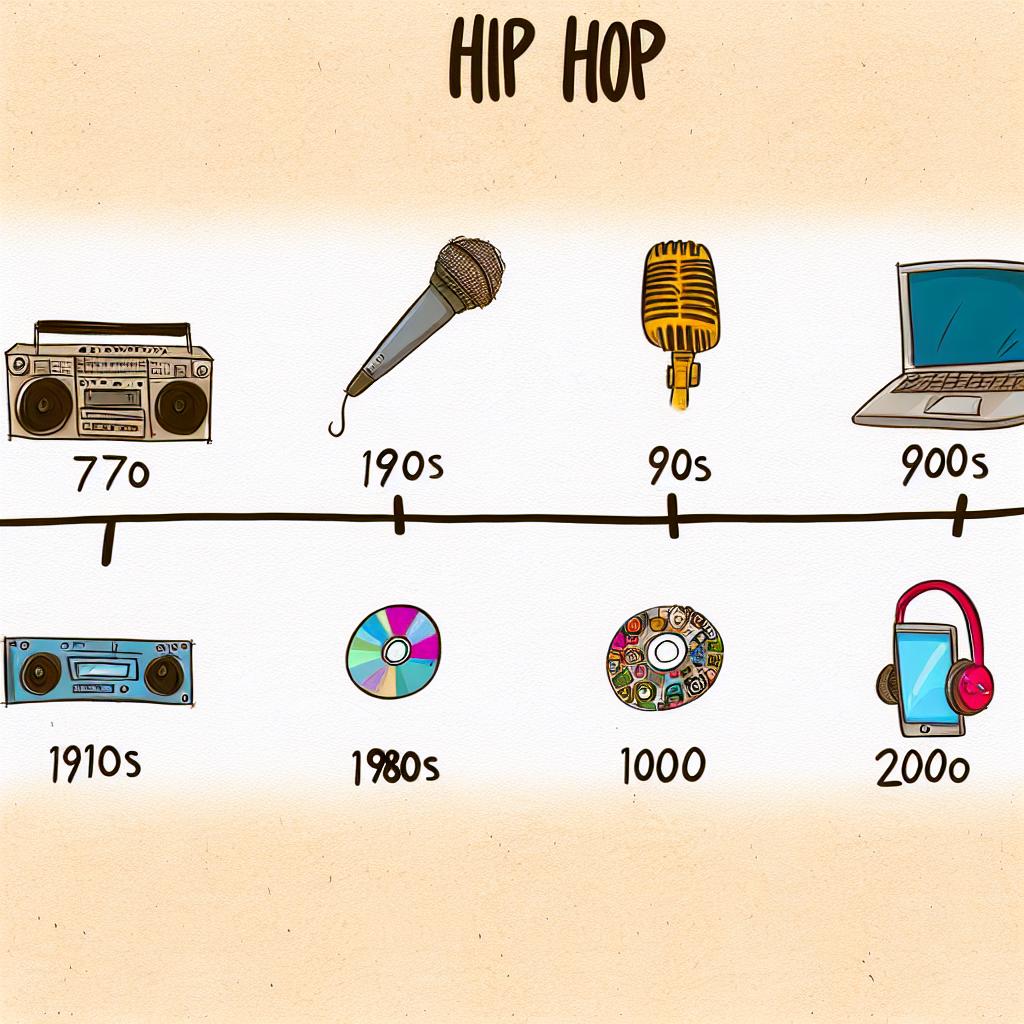The Origins: The 1970s and 1980s
The emergence of hip hop in the 1970s marked a significant cultural shift. During its inception, hip hop was a breath of fresh air, emerging from the streets of New York City and capturing the vibrancy of urban life. Initially, the lyrics were largely focused on party anthems and sociable themes. This was a form of escapism, a way for young people to find joy amidst the chaos of city life.
Key figures in the early scene included Grandmaster Flash and the Furious Five. Their seminal track, “The Message,” broke new ground by introducing more socially conscious themes into the genre, highlighting urban struggles such as poverty, crime, and disenfranchisement in a way that had not been done in music before. The lyrics were straightforward yet powerful, shunning the glamorization of violence and offering a raw depiction of the harsh realities faced daily by urban youth.
The use of simple rhymes and repetitive hooks was common as the genre was still in its infancy. Many artists relied on these elements to make their messages more accessible and engaging to a broad audience. This period set the stage for hip hop’s evolution, crafting a foundation upon which future artists would build and innovate.
Rising Complexity: The 1990s
As the genre matured into the 1990s, hip hop lyrics experienced a notable transformation towards more complex and varied themes. This was a decade that witnessed the rise of gangsta rap, gaining tremendous popularity and shifting the lyrical focus to the gritty depictions of street life. Artists such as Tupac Shakur and The Notorious B.I.G. dominated the scene with lyrics that detailed personal experiences, struggles, and aspirations. Their music often depicted the harsh realities of life in marginalized communities, addressing issues like violence, poverty, and racial tension.
Meanwhile, the rivalry between East Coast and West Coast rap factions brought diversity to the musical style and lyrical content. This intense competition not only fueled innovation but also highlighted regional cultural differences within hip hop.
In parallel, groups like A Tribe Called Quest and De La Soul forged a different path. They experimented with intricate wordplay, jazz influences, and introspective lyrics, broadening the narrative scope of the genre. These artists embraced more philosophical and at times, whimsical themes, presenting hip hop as a versatile art form capable of exploring both the mundane and profound aspects of life.
Commercialization and Mainstream Appeal: The 2000s
As the world entered the 2000s, hip hop lyrics became more polished as the genre crossed into mainstream consciousness. Artists like Jay-Z and Eminem helped to redefine what it meant for hip hop to be commercially viable by crafting narratives rich with personal insights and emotive storytelling. These artists gained widespread acclaim not only for their lyrical prowess but also for their ability to maintain authenticity while achieving commercial success.
The songs of this era often blended hip hop with pop elements, expanding the genre’s audience base and increasing its global appeal. This was a period where hip hop artists frequently topped the charts, achieving a level of visibility that previously seemed unattainable. The lyrical themes of the time mirrored the economic aspirations and materialism of the era, reflecting broader economic trends and societal values.
Simultaneously, artists were beginning to tackle a wider array of themes. The 2000s laid the groundwork for future exploration of topics like mental health, political activism, and social justice that would become more prominent in the following decade.
Contemporary Developments: The 2010s to Present
In the more recent 2010s and beyond, hip hop lyrics have continued to evolve, embracing increasingly diverse themes. Artists like Kendrick Lamar and J. Cole have pushed boundaries with lyrics that challenge societal norms and address complex social issues. Their work is characterized by a deep level of introspection and a commitment to authenticity in storytelling.
Modern hip hop has gradually embraced themes of political activism, mental health, and personal identity, reflecting the complex realities of contemporary life. The rise of Trap music during this period has also provided artists with a new sonic landscape for innovative lyrical content, allowing them to mix bravado with vulnerability.
Exploring emotional depth, modern hip hop lyrics often reflect the multifaceted experiences of today’s artists. These narratives grapple with topics ranging from systemic injustice and racial identity to individual struggles with mental illness and personal growth. The genre has thus become an intricate tapestry depicting the plurality of the human experience in the 21st century.
Conclusion: A Reflection of Society
Overall, the evolution of hip hop lyrics mirrors the changing landscapes of society. From their origins as party anthems to their present complexity in discussing serious global concerns, the continuous evolution of hip hop underscores its power as a medium for expression and storytelling. Whether it highlights personal, social, or political issues, hip hop remains a vibrant and influential voice representing diverse perspectives and cultural shifts across decades. This ability to adapt and remain relevant ensures that hip hop will continue to be an essential platform for dialogue and change in the future.


